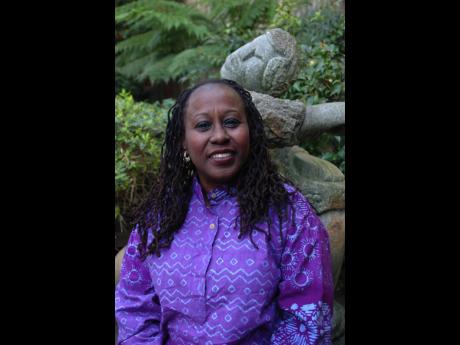Sex strike - Gender activists call for withholding of pleasure to protest violence against women
Gender activists in Jamaica are hoping that the call for a more-than-one-month withdrawal of sexual privileges in romantic relationships will raise awareness about violence against women and enlist male muscle in the fight for respect.
Reacting to a wave of spousal violence in her country, the fire of fury was lit by Trinidad and Tobago writer and gender advocate Nazma Muller, who took to her social-media page urging women to organise a sex strike to starve men into submission and put the cause of women’s rights on the front burner. She has proposed that the sex strike be imposed until March 8, International Women’s Day.
Speaking to The Gleaner yesterday afternoon, Muller urged Caribbean women to protest against the ideology that women were property, arguing that men will “never miss the water till the well runs dry”.
“They will begin to value us and our capacity to produce life if we doh let off none. Lock shop and reflect on what this thing is doing to us and to the future. I am saying to my sisters across the Caribbean, let us really consider and appreciate this thing we have and the case of how it is used.
“We really have to take back our p**p** and put value on it,” Muller said during the interview.
Since the start of the year, there have been at least four cases of fatal domestic violence against women in Trinidad, the latest being a murder-suicide on Monday in the town of Couva. Twenty women were murdered by their partners between November 2018 and December 2019.
As a result, the Trinidad and Tobago Police Service recently launched a Gender-Based Violence Unit to address reports of domestic and intimate-partner violence, sexual assault, among other gender-based crimes.
Professor Opal Palmer Adisa, university director of the Institute for Gender and Development Studies, at The University of the West Indies, Mona, said she would strongly advocate for Jamaican women to also ‘lock shop’ in protest of gender-based violence here.
Acknowledging that women have used sexual power for personal benefit and sway in their relationships for ages, Palmer Adisa said it was time for women to collectively challenge patriarchal values of entitlement.
“Jamaica definitely needs a strike, and I think that women have more power than they exercise. If women were so organised and all women took this on as their issue and we say nothing, nobody getting anything, including those who are behaving themselves, then that would have some impact,” Palmer Adisa said.
The advocacy comes amid national outrage over a slew of killings of women, including the New Year’s Eve slaying of a Manchester woman by her supervisor partner, the murder-suicide by a Jamaica Defence Force corporal in Portmore, and a savage knife homicide in the quiet St Elizabeth district of Brinkley, presumably by an estranged lover.
Just yesterday, a St Catherine man who chopped a woman to death and wound another pleaded guilty to murder and attempted murder in the St Catherine Circuit Court.
The accused, 65-year-old Ernest Whyte, was ordered remanded for sentencing on March 4 by Justice Andrea Pettigrew-Collins.
A social enquiry report was also requested by the court.
On a previous appearance Whyte was remanded for a forensic psychiatric evaluation.
He was represented by attorney-at-law Donald Bryan.
Facts are that in September14, 2018, Whyte attacked Denise Bright, the mother of his child, at home in McCooks Pen, St Catherine.
He used a machete to chop her repeatedly and then covered her bloody body under a sheet of zinc.
The accused reportedly went to Homestead in Spanish Town where he attacked the second woman, the mother of another child of his, with a machete, chopping her, too.
He then locked the woman and his son inside and set the house ablaze. They were later rescued.
Whyte reportedly threw stones at the police and was shot and subdued.
Palmer Adisa fears, however, that because many women will not feel sufficiently empowered to engage in a strike of this nature, requiring mass participation, the desired result might not be achieved.
Gender activist Nadeen Spence shares a similar sentiment of caution.
Spence said that even though women have used a sex strike in seeking to end civil war, she did not believe the strategy would be successful in Jamaica because some women were quick to cast blame on other women.
The advocacy to which she referred was the sex strike organised in the West African state of Liberia in 2003 by Leymah Gbowee, ending 14 years of civil war. Gbowee was later named a Nobel Peace Prize winner.
But Palmer Adisa believes that one way of achieving a paradigm shift in Jamaican culture and relationships is to recruit men as loud voices in the fight against patriarchal violence.
“The men have to be our allies and they have to speak to other men, their brothers, men on the street they see are disrespecting women, so that becomes their responsibility,” she told The Gleaner.

